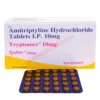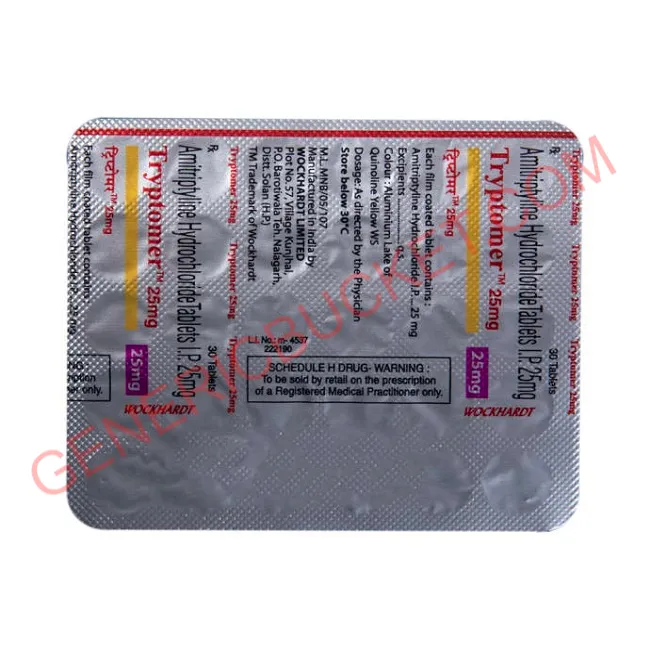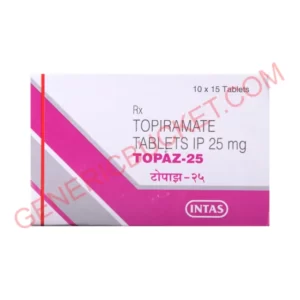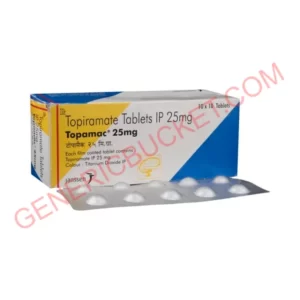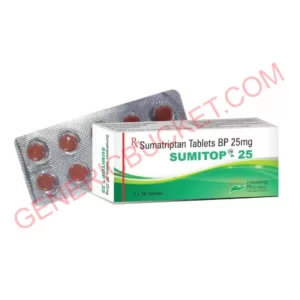Tryptomer 25mg Tablet (Amitriptyline 25mg)
$26.00 – $83.00Price range: $26.00 through $83.00
| Country of Origin | india |
|---|---|
| Dosage Form | Tablets |
| Generic Name | Amitriptyline |
| Indication | Treatment of Depression |
| Packaging | 30 tablets in 1 strip |
| Manufacturer | Wockhardt Ltd |
| Composition | Amitriptyline (25mg) |
| Tryptomer 25mg Tablet (Amitriptyline 25mg) | |||
| Pack Size | Price | Price/Unit | Add To Cart |
| 60 Tablet/s | $26.00 (0.43/unit) | $0.43 | |
| 120 Tablet/s | $45.00 (0.38/unit) | $0.38 | |
| 240 Tablet/s | $83.00 (0.35/unit) | $0.35 | |
INTRODUCTION
Tryptomer 25mg contain Amitriptyline which belongs to a group of medicine called tricyclic antidepressants. Tricyclic antidepressants are used to treat depression as well as manage a variety of other conditions, ranging from obsessive-compulsive disorder to bedwetting. This medicine is used to treat depression in adults (major depressive episodes), neuropathic pain in adults, chronic tension type headache prophylaxis in adults, migraine prophylaxis in adults, bed-wetting at night in children aged 6 years and above, only when organic causes such as spina bifida and related disorders
Depression is a mood disorder that will causes a persistent feeling of sadness and loss of interest. Neuropathic pain is a pain condition that is usually chronic. It is usually caused by chronic, progressive nerve disease. It can occur as the result of injury or infection. This medicine is strictly not recommended for use in children and adolescents under 18 years. Before taking this medicine tell your doctor if you have ever had kidney disease, heart disease, liver problems. Pregnant and breastfeeding women should consult their doctor before taking this medicine.
USES OF Tryptomer 25mg
Depression in adults (major depressive episodes)
Neuropathic pain in adults
Chronic tension type headache prophylaxis in adults
Migraine prophylaxis in adults
Bed-wetting at night in children aged 6 years and above, only when organic causes such as spina bifida and related disorders
HOW Tryptomer 25mg WORKS
TRYPTOMER works by increasing the levels of chemical messengers in the brain that help in regulating mood and treat depression. It also stops the transmission of pain signals from nerves to the brain thereby relieving neuropathic pain (pain from damaged nerves).
DIRECTIONS FOR USE
Always take TRYPTOMER exactly as your doctor has told you. This medicine must be taken with or without food. Try to take this medicine at the same time each day. It should be swallowed whole with water. Do not crush or chew the medicine.
Related Product
SIDE EFFECTS OF TRYPTOMER
COMMON
Heart problem, irregular, hard or rapid heartbeat
Sleepiness/drowsiness
Shakiness of hands or other body parts
Dizziness, headache
Dry mouth
Constipation
Nausea
Excessive sweating
Weight gain
Slurred or slow speech
Aggression
Congested nose
Confusion
Sexual disturbances (decreased sex-drive, problems with erection)
Disturbance in attention
Changes in taste
Numbness in the arms or legs
Disturbed coordination
Dilated pupils
Fatigue
Low sodium concentration in the blood
Agitation
Urination disorders
Feeling thirsty
RARE
Swollen stomach, fever, and vomiting
Jaundice (yellowing of the skin and the white in the eyes)
Bruising, bleeding, pallor, or persistent sore throat (symptoms can be the first signs that your blood or bone marrow may be affected, decrease in the number of red cells, white cells, and platelets)
Suicidal thoughts or behavior
Decreased appetite
Delirium (especially in elderly patients), hallucinations
Swelling of the salivary glands
Hair loss
Increased sensitivity to sunlight
Breast enlargement in men
Weight loss
Abnormal liver function
HOW TO MANAGE SIDE EFFECTS
Dizziness:
Get up and move around to feel awake, take small naps to edge off the sleepiness. Give your eyes a break to avoid fatigue and eat a healthy food to boost energy.
Headache:
Apply hot or cold-water bag on your head. Take rest in a quiet and dark room. Drink tea or coffee.
Constipation:
Take fibre rich foods such as fresh fruit, vegetables and cereals, and drink plenty of water. Exercise more regularly.
Nausea:
Try taking this medicine with, or just after, a meal or snack and stick to simple meals and do not eat rich or spicy food.
WARNING & PRECAUTIONS
PREGNANCY
TRYPTOMER is not recommended for use in pregnant women unless necessary. Discuss the risks and benefits with your doctor.
BREASTFEEDING
TRYPTOMER is not recommended for use in breastfeeding women unless necessary. Discuss the risks and benefits with your doctor.
DRIVING AND USING MACHINES
Do not drive or operate any machine while taking this medicine since it may cause drowsiness and dizziness.
ALCOHOL
Consumption of alcohol is not recommended during treatment with TRYPTOMER.
KIDNEY
TRYPTOMER should be used with caution in patients suffering from active kidney diseases. Consult your doctor for advice.
LIVER
TRYPTOMER is not recommended in patients with active liver diseases. Before taking, discuss the risks and benefits with your doctor.
ALLERGY
Do not take TRYPTOMER if you are allergic (hypersensitive) to Amitriptyline or any other ingredients in this medicine.
HEART DISEASE
TRYPTOMER is not recommended in patients with active heart diseases. Before taking, discuss the risks and benefits with your doctor.
OTHERS
Tell your doctor if you have or had a condition such as,
Have a problem that gives you a low level of potassium or magnesium, or a high level of potassium in your blood
Have a surgery planned
Have an overactive thyroid gland or receive thyroid medication
Thoughts of suicide and worsening of your depression
Have thoughts of harming or killing yourself at any time
Narrow angle glaucoma (loss of vision due to abnormally high pressure in the eye)
Epilepsy, a history of convulsions or fits
Pylorus stenosis (narrowing of the gastric outlet) and paralytic ileus (blocked intestine)
Diabetes
Suffer from certain side effects, such as dizziness when you stand up due to low blood pressure
INTERACTIONS
Talk to your doctor if you are taking,
Monoamine oxidase inhibitors (MAOIs) such as phenelzine, iproniazid, isocarboxazid, nialamide, ortranylcypromine (used to treat depression) or selegiline (used to treat Parkinson’s disease)
Medicine such as adrenaline, ephedrine, isoprenaline, noradrenaline, phenylephrine, and phenylpropanolamine (these may be present in cough or cold medicine, and in some anaesthetics)
Medicine to treat high blood pressure for example calcium-channel blockers (such as diltiazem and verapamil), guanethidine, betanidine, clonidine reserpine and methyldopa
Thioridazine (used to treat schizophrenia)
Tramadol (painkiller)
Medicines to treat fungal infections (e.g. fluconazole, terbinafine, ketoconazole, and itraconazole)
Sedatives (e.g. barbiturates)
Medicines for certain heart conditions (e.g. beta blockers and antiarrhythmics such as amiodarone, disopyramide, propafenone)
Valproic acid (used to treat mania)
Quinidine and sotalol (used to treat irregular heartbeats)
Astemizole and terfenadine (used to treat allergies and hay fever)
Pimozide and sertindole (used to treat some mental illnesses)
Cisapride (used to treat certain types of indigestion)
Halofantrine (used to treat malaria)
Methadone (used to treat pain and for detoxification)
Diuretics (“water tablets” e.g. furosemide)
Related products
Anti Migraine Drugs
Anti Migraine Drugs
Angina Pectoris Anti-Anginals
Anti Migraine Drugs
Angina Pectoris Anti-Anginals
Anti Migraine Drugs
Anti Migraine Drugs
Anti Migraine Drugs
Anti Migraine Drugs
Anti Migraine Drugs
Anti Migraine Drugs
Anti Migraine Drugs


